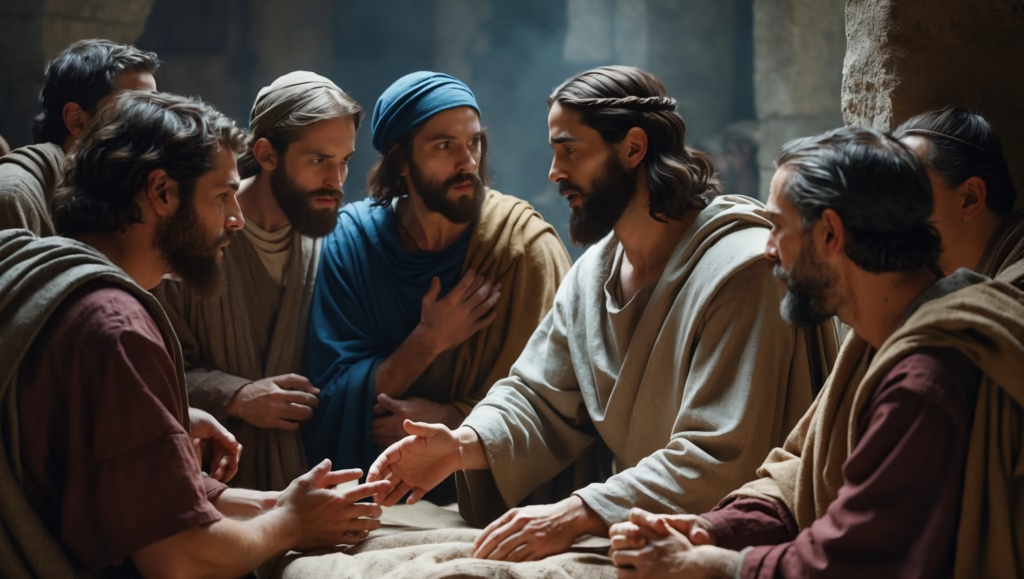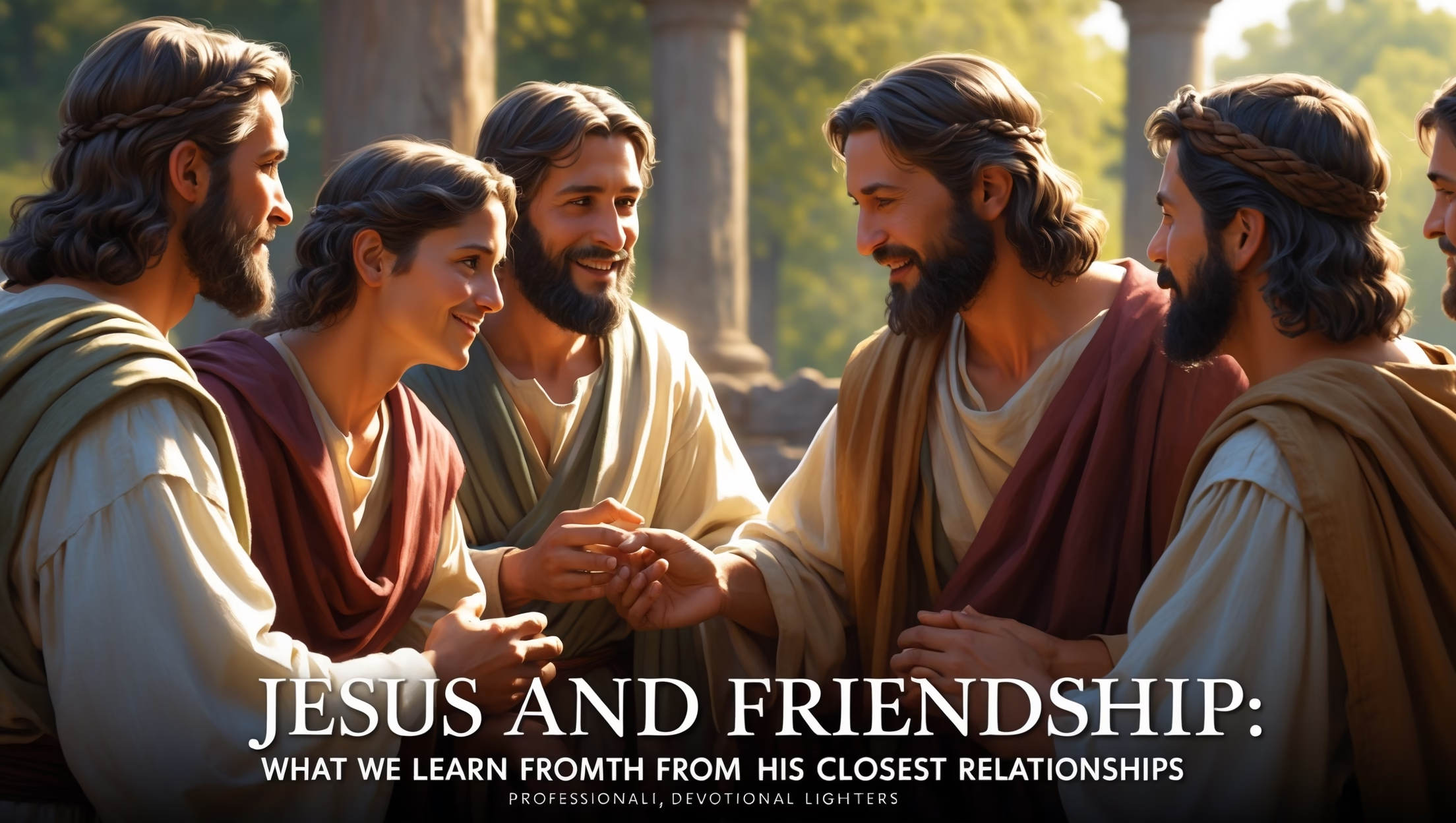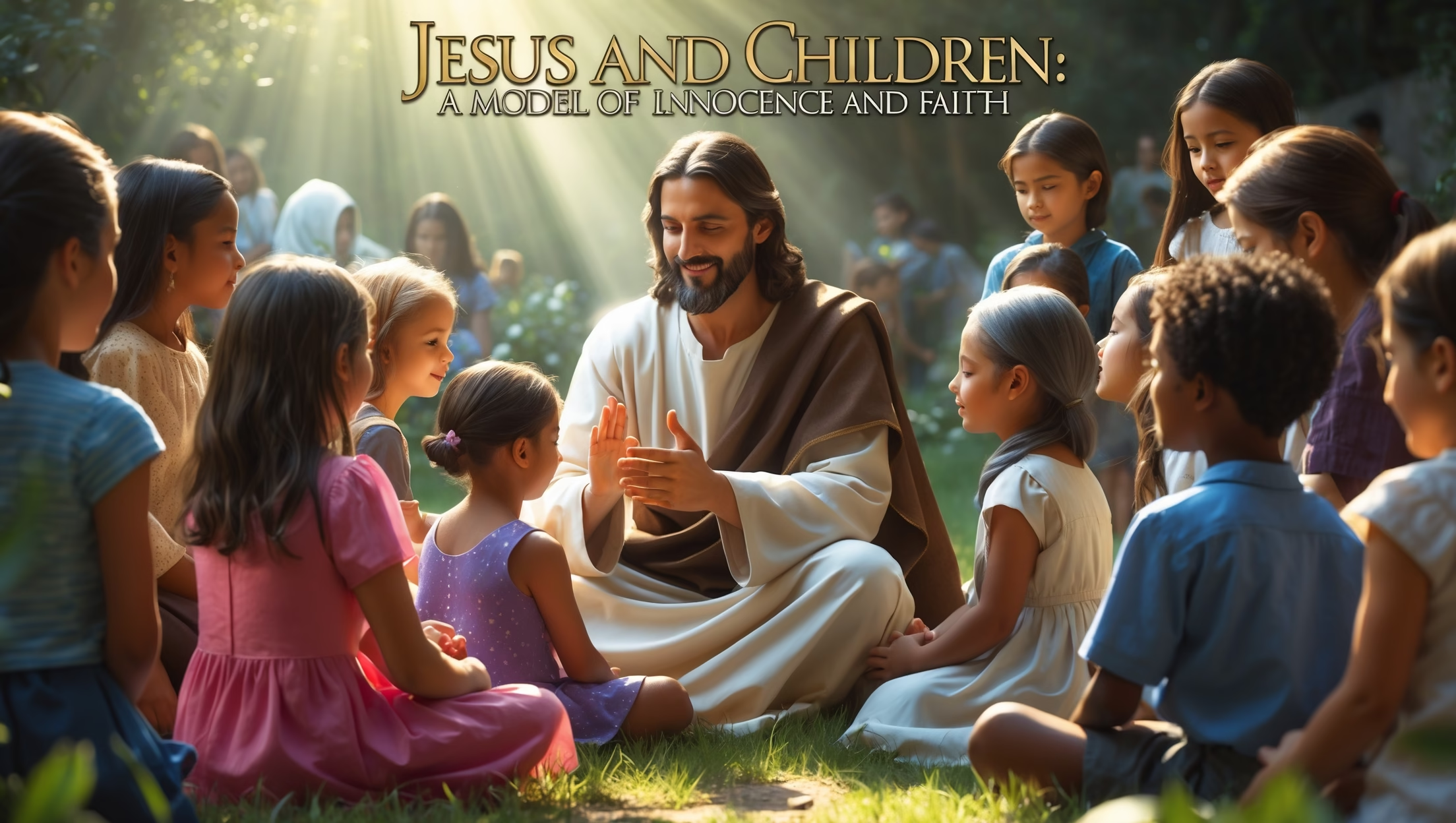Introduction
When we think of Jesus, titles like Lord, Savior, and Messiah often come to mind. Yet the Gospels reveal a side of Him that is profoundly human and deeply relational: Jesus as a friend. Throughout His earthly ministry, He modeled authentic friendship, showing loyalty, compassion, and selfless love. His interactions with His disciples, His inner circle, and even those considered outcasts or sinners provide timeless lessons on building meaningful relationships. Understanding Jesus’ approach to friendship helps us navigate our own relationships with integrity, empathy, and grace.

Jesus and His Disciples
One of the clearest examples of Jesus’ friendship is His relationship with the twelve disciples. He did not call them merely to follow as students; He invited them into a shared life. He ate with them, traveled with them, and engaged in ordinary daily experiences alongside them. This relational approach contrasts sharply with the hierarchical leadership of the time, where teachers often maintained emotional distance.
Through these shared moments, Jesus modeled how friendship includes presence and attention. He invested time in teaching them about the kingdom of God, but also in understanding their fears, questions, and struggles. The disciples experienced Jesus not only as a leader but as a companion, illustrating that authentic friendship is as much about shared life as it is about shared knowledge.
Jesus and the Inner Circle
Within His group of twelve, Jesus had a closer circle—Peter, James, and John—who experienced an even deeper level of intimacy. They witnessed pivotal moments such as the Transfiguration and were present during the most agonizing hours in Gethsemane. These relationships reveal that friendships can have layers of closeness.
Jesus’ inner circle demonstrates the importance of trust and vulnerability in friendship. He shared His joys, fears, and spiritual struggles with these disciples, inviting them into His personal life. This shows that true friendship is not one-dimensional; it involves openness, mutual trust, and shared experiences, even in moments of pain and uncertainty.
Jesus and Lazarus, Mary, and Martha
Another profound example of Jesus’ friendship is His relationship with Lazarus and his sisters, Mary and Martha. John 11 recounts the death of Lazarus and Jesus’ emotional response: He wept. This moment highlights His deep empathy and genuine emotional connection. Jesus was not distant or detached; He felt grief alongside His friends.
This story teaches us that friendship includes both presence and empathy. To be a true friend is to rejoice in one another’s victories and to mourn in times of loss. Jesus’ tears at Lazarus’ tomb remind us that strong friendships involve emotional honesty and the willingness to share in each other’s deepest feelings.
Friendship with Sinners and Outcasts
Perhaps most radical was Jesus’ approach to those society rejected. Tax collectors, sinners, and marginalized individuals found a friend in Him. Zacchaeus, for instance, experienced life-changing friendship when Jesus dined in his home, affirming his worth despite societal judgment. Similarly, Jesus spoke to women, lepers, and others whom culture shunned, demonstrating that friendship is not about status or social approval but about love, acceptance, and grace.
Jesus’ relationships with outcasts reveal a transformative principle: friendship has the power to restore, heal, and elevate. By befriending those marginalized by society, He not only met immediate social and emotional needs but also extended the love and kingdom of God through relational connection.
Qualities of Jesus’ Friendship
Across all these relationships, several qualities emerge that define Jesus’ approach to friendship. Loyalty stands at the forefront: He remained committed to His disciples despite their misunderstandings, betrayals, and failures. Honesty is also evident; Jesus corrected, guided, and confronted His friends when necessary, showing that love involves truthful communication.
Compassion and empathy were constant threads. Whether weeping at Lazarus’ tomb or comforting His disciples, Jesus consistently met people where they were emotionally. Lastly, sacrifice defines His friendship most profoundly. He ultimately declared, “Greater love has no one than this: to lay down one’s life for one’s friends” (John 15:13). His life and death embody the ultimate act of friendship, where love is expressed through selflessness and service.
Lessons for Modern Friendship
Jesus’ model of friendship carries timeless lessons for today. First, friendship requires presence and attention. Sharing life, listening deeply, and investing in relationships are foundational. Second, vulnerability is key; deep friendships allow for honesty and emotional sharing. Third, compassion and empathy form the core of meaningful connections. Lastly, friendship sometimes calls for sacrifice—not necessarily in life-or-death terms, but in giving time, energy, and care to others consistently.
Moreover, Jesus challenges us to expand our concept of friendship beyond convenience or social standing. True friendship is inclusive, extends grace, and seeks the well-being of others regardless of societal norms or personal gain. By following His example, we cultivate relationships that reflect love, integrity, and mutual respect.
Conclusion
Jesus’ friendships reveal a side of Him that is tender, relational, and deeply human. Whether with His disciples, His inner circle, Lazarus and his sisters, or society’s outcasts, He modeled loyalty, honesty, empathy, and sacrificial love. His life shows that friendship is not merely a social convenience but a sacred relational practice that can transform lives and communities.
Through Jesus, we learn that true friendship invites presence, vulnerability, compassion, and selflessness. His example challenges us to build relationships grounded not in status, convenience, or self-interest, but in genuine love and commitment. Jesus as a friend is not only a model for how to relate to others but also an inspiration to embrace the fullness of human connection as God intended. In following His example, our friendships can become spaces of healing, growth, and enduring love.










